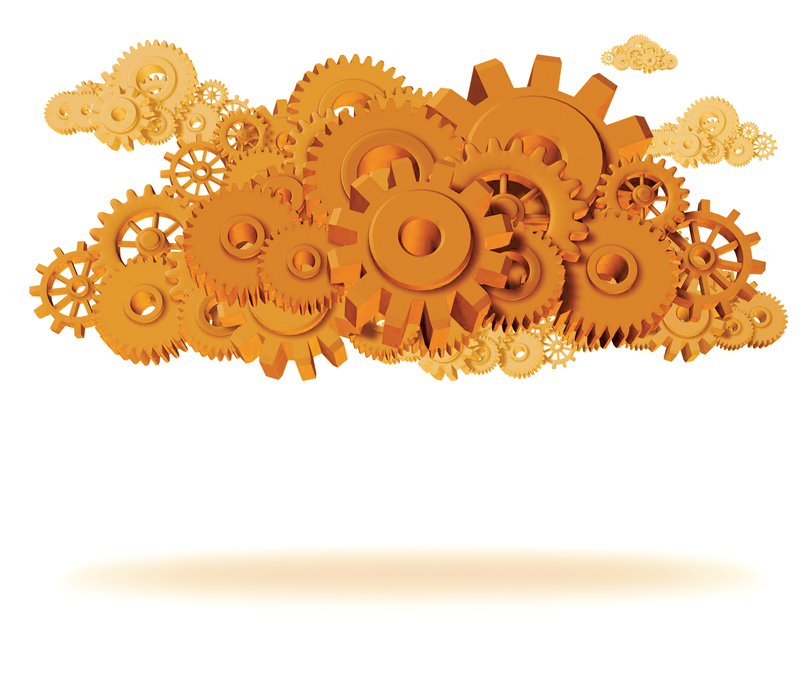
Our Technological Enlightenment
The landscape of computing changes so quickly that it's hard to pin down a particular "age" or trend that lasts long enough to classify it. However, I have observed that over the past few years, a subplot is developing in the technology story: Enlightenment. I'm not talking about a Zen-like enlightenment but one of maturity and of prosperity. Some of you might find my use of the word "prosperity" amusing because of prevailing economic conditions, but there is a prosperity in the technology sector. Think Cloud. Think virtualization. Think green. Think about the explosion in mobile technologies. And, think about how these technologies have led us to this newfound enlightenment.
The primary drivers of this enlightenment are smarter technologies, smarter technologists, smarter users, and smarter executives. We're more informed than ever before, we're better equipped than ever before, and we're more adaptable to change than ever before. If you don't agree, then think back to 40 years ago when technology workers used dumb terminals connected to mainframes. Few, if any, of those workers had their own dumb terminals at home, and computers were "black boxes" that only an elite group understood to any degree.
Just over 30 years ago, when personal computers hit the market, the professional and the high-end hobbyist were part of the new "PC" revolution. These heavy, overpriced, non-mobile boxes made their way into a select number of homes and businesses, while the everyman on the street looked on in dismay or in disdain of the whole computer fad.
Twenty years ago, when the personal computer became affordable and Microsoft Windows was in its infancy, a new generation of computer user was born: The Home Computer User. CompuServe and Prodigy were booming, bulletin board systems (BBSs) were peaking, and computer networks were becoming commonplace in businesses.
Still, we were in the dark and were disconnected.
The mid-1990s saw a boom in the number of computer users with the new, publicly accessible Internet – or as we called it, The Information Superhighway. That term seems laughable now compared with today's volume, speed, and capacity of data center servers, individual PCs, and cell phones. Compare the numbers, sizes, capacities, and prices of the 1990s with those of today. For example, in 1995, a 500MB hard disk was considered large; today, my iPhone 4 has a 16GB capacity, of which I have just over 6GB free.
Also, try to imagine when only one in 10 homes had a computer compared with today, when each person in a home might own a cell phone and a personal computer or tablet computer. Most of us have a DVR network supplied by our cable or phone company, so we can watch recorded television in every room. Just 10 years ago, you only saw a handful of people in public places using cell phones. Today, no matter where you go, everyone you see is staring into a small screen. Internet access is so common that some providers require a "Data Plan" tacked onto your cell phone bill.
Now, not only do we have unlimited connectivity and access to each other and to the Internet, we also have access to our office networks through our mobile devices. We connect to our offices for email, for shared documentation, for collaborative discussions, for conference calls, and for text-based communications – all from the same device. We seem to know instinctively how to connect and disconnect at will to pursue our own self-indulgent connectivity.
We're part of the revolution and we're part of the evolution. We're blurring the lines between work and leisure. We're making ourselves more available to our employers. It no longer matters where we are or when we work – we're connected. We're smarter because of our technology. Our technology is smarter. Our employers are smarter because they know we're connected.
We've experience a technological revolution in our time. We've watched evolution in progress like no other generation. We've progressed from The Flintstones to The Jetsons in a very short span of time. It's a very exciting time to be alive. We're connected. We're smarter. We're enlightened. But, what we do next is very important. We don't want to become enslaved by our devices, our connectivity, or our enlightenment.
The solution to our enlightenment is to know when to disconnect. Put down your cell phones and have real conversations that don't involve your thumbs. Buy a film camera and discover creativity in a new way. Walk away from your desks and discover the beautiful, unenlightened, analog world that still exists around you. You're welcome.
Ken Hess * ADMIN Senior Editor
